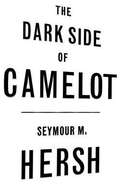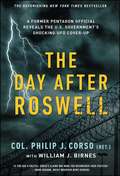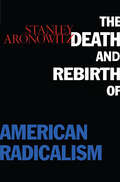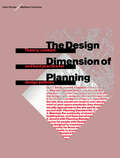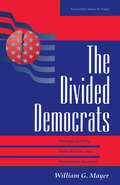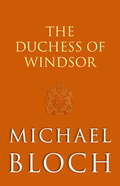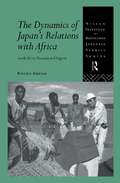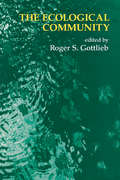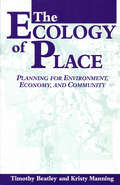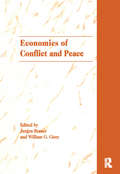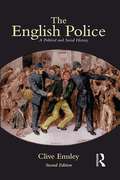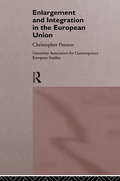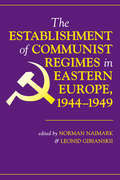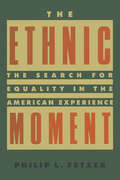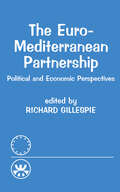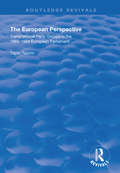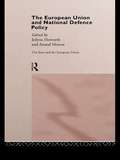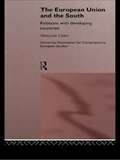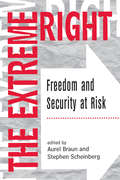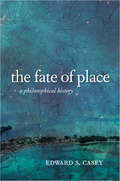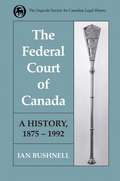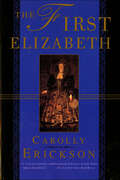- Table View
- List View
The Dark Side of Camelot
by Seymour M. HershThis is not a book about John Kennedy's brilliant moments, and his brilliant policies. Nor is it a book about the awful moment of his death and why he was shot. John Kennedy's policies and his life contained many superb moments. After his death, his glamour and wit combined with his successes in foreign affairs and domestic policies - real and imagined - to create the myth of Camelot, But there was a dark side to Camelot, and to John Kennedy. I began writing this book knowing that it would inevitably move into a sensitive area: When is it relevant to report on the private life of a public man? The central finding that emerged from five years of reporting, and more than a thousand interviews with people who knew and worked with John F. Kennedy, is that Kennedy's private life and personal obsessions - his character - affected the affairs of the nation and its foreign policy far more than has ever been known. This is a book about a man whose personal weaknesses limited his ability to carry out his duties as president. It is also a book about the power of beauty. It tells of otherwise strong and self-reliant men and women who were awed and seduced by Kennedy's magnetism, and who competed with one another to please the most charismatic leader in our nation's history. Many are still blinded today.
The Day After Roswell
by William J. Birnes Philip CorsoA breathtaking exposé that reads like a thriller, The Day After Roswell is a stunning depiction of just what happened in Roswell, New Mexico all those years ago and how the effects of this mysterious unidentified aircraft crash are still relevant today.Former member of President Eisenhower&’s National Security Council and the Foreign Technology Desk in the United States Army, Colonel Philip J. Corso was assigned to work at a strange crash site in Roswell in 1947. He had no idea that his work there would change his life and the course of history forever. Only in his fascinating memoir can you discover how he helped removed alien artifacts from the site and used them to help improve much of the technology the Army uses today, such as circuit chips, fiber optics, and more. Laying bare the United States government&’s shocking role in the Roswell incident—what was found, the cover-up, and more—The Day After Roswell is an extraordinary memoir that not only forces us to reconsider the past, but also our role in the universe.
The Death and Rebirth of American Radicalism
by Stanley AronowitzThe Death and Rebirth of American Radicalism differentiates the "Social Justice Left" from "Cultural Radicalism" and the various social movements for individual freedom. In The Death and Rebirth of American Radicalism, Stanley Aronowitz asks the question, "Is there anything left of the Left?" With the rise of Newt Gingrich and his "Contract With America," how is it that conservativism staged such a remarkable recovery after being discounted in the turbulent 1960s? Aronowitz addresses these and other burning issues of contemporary politics.
The Design Dimension of Planning: Theory, content and best practice for design policies
by Matthew Carmona John PunterThis book examines the design policies in current development plans. With design quality of growing importance to the public, consumers, developers and their clients, and high on the Secretary of State's agenda, this book makes an important practical contribution to improving design control. With the increasing importance attached to district-wide development plan policies since 1991, local planning authorities and community groups have an important opportunity to improve their control over the built environment. This research text explains how clear, comprehensive and effective policies can be researched, written and implemented.
The Divided Democrats: Ideological Unity, Party Reform, And Presidential Elections
by William G. MayerWhy have the Democrats lost five of the last seven presidential elections, even though polls consistently show that more Americans identify with that party than with the Republican party? And why are Democratic presidential nomination races usually so much more bitter and fractious than those held by the Republicans?The answer, argues William Mayer, lies in an important but too often ignored feature of American politics: The Democrats are a more ideologically diverse, less cohesive party than the Republicans and thus have greater difficulty maintaining party unity. After extensively documenting the Democrats' traditional problems of division and disagreement, Mayer presents evidence suggesting that in recent years the Republican advantage over the Democrats has finally started to narrow,raising important questions about the future of the Republican coalition.
The Duchess of Windsor: The Truth About the Royal Family's Greatest Scandal
by Michael BlochMichael Bloch's biography of the woman Edward VIII renounced kingship to marry drew on his previous publication of their intimate corespondence, and presented a picture of her which was often startlingly at variance with previous accounts.It brings vividly to life the qualities which captivated her royal suitor, and caused some surprise by speculating that much of the mystery of her life might be explained by an element of gender confusion.
The Duchess of Windsor: The Truth About the Royal Family's Greatest Scandal
by Michael BlochRoyal scandal is nothing new. In 1936, the royal family was rocked by events that threatened its very existence. Edward VIII, King of the United Kingdom and the Dominions of the British Empire, Emperor of India, gave up his throne. A constitutional crisis ensued. The reason? He intended to marry Wallis Simpson - a divorcee.In The Duchess of Windsor, Michael Bloch tells her fascinating story. This is the definitive biography of the woman Edward prized above his crown. Drawing on first-hand access to their intimate correspondence, it paints a picture of Simpson which was often startlingly at variance with the official story as reported at the time. It brings vividly to life the qualities which captivated her royal suitor, and on publication caused outrage and surprise by uncovering the great mysteries of her life.
The Dynamics of Japan's Relations with Africa: South Africa, Tanzania and Nigeria (Nissan Institute/Routledge Japanese Studies)
by Kweku AmpiahThis is the first book to examine in-depth Japan's relations with Africa. Japan's dependence on raw materials from South Africa made it impossible for Tokyo in the 1970s and 1980s to support other African states in their fight against the minority government and its policy of apartheid. Kweku Ampiah's detailed analysis of Japan's political, economic and diplomatic relations with sub-Saharan Africa from 1974 to the early 1990s makes it clear that Japan was lukewarm in the struggle against apartheid. Case studies of Tanzania and Nigeria dissect Japan's trade, aid and investment policies in sub-Saharan Africa more widely.
The Ecological Community: Environmental Challenges For Philosophy, Politics And Morality
by Roger S. GottliebFirst Published in 1997. Routledge is an imprint of Taylor & Francis, an informa company.
The Ecology of Place: Planning for Environment, Economy, and Community
by Timothy Beatley Kristy ManningThe Ecology of Place is a timely resource for planners, economic development specialists, students, and citizen activists working toward establishing healthier and more sustainable patterns of growth and development.
The Economics of Conflict and Peace: Economic, Legal, And Political Perspectives (Contributions To Conflict Management, Peace Economics And Development Ser.)
by Jurgen Brauer William G. GissyThis work addresses new directions in research on the economic theory of conflict, the cost of war, and the benefits of peace. A collection of 17 papers drawing on contributors from all continents, the volume is divided into four sections. The first discusses novel ways to think about the economics of conflict and peace from theory perspectives. These include discussions of conflict from the perspectives of standard neoclassical analysis and economic geography. An especially interesting paper in this section addresses conflict in the context of the emerging theory of international public finance. A second section deals with military expenditures, economic/human development and economic growth in the US and developing nations of Asia and Africa. The volume enters new territory in sections three and four. Section three contains a set of papers on the economic cost of war and war’s aftermath, significantly expanding economists’ rather modest efforts to date. Section four is concerned with how the concepts of economics might be operationalized and institutionalized to foster security.
The Economics of the Construction Industry
by Gerald FinkelThe American construction industry, reponsible for nearly 4% of the nation's Gross Domestic Product, directly employs over five million people and provides millions of additional support jobs in related fields. This book provides an introductory overview of the economic aspects of the industry, including the historical development of building activity from earliest times to modern day market-based construction, including the work of individual artisans to complex construction unions. The book explores current trends in labor force participation; the measurement of industry performance; the determinants of investment; government involvement; competition; wage determination; training; and worker safety.
The English Police: A Political and Social History
by Clive EmsleyA comprehensive history of policing from the eighteenth century onwards, which draws on largely unused police archives. Clive Emsley addresses all the major issues of debate; he explores the impact of legislation and policy at both national and local levels, and considers the claim that the English police were non-political and free from political control. In the final section, he looks at the changing experience of police life. Established as a standard introduction to the subject on its first appearance, the Second Edition has been substantially revised and is now published under the Longman imprint for the first time.
The Enlargement and Integration of the European Union: Issues and Strategies (Routledge/UACES Contemporary European Studies)
by David ClarkThis study addresses many of the key issues raised by the increasing expansion of the EU. Analysing the traditional 'Community method' of espansion and finding many shortcomings with its ability to handle future enlargement, Chris Preston explores:* the past experience of enlargement and the lessons that can be drawn* the impact that enlargement has had on EU policies, institutions and the new member themselves* the likely future developments in the enlargement processFocusing on the Mediterranean, Central and Eastern Europe and the former Soviet countries, this book will be essential reading for students, specialists and practitioners of European Politics.
The Establishment Of Communist Regimes In Eastern Europe, 1944-1949
by Norman NaimarkThe collaborative effort of scholars from Russia and the United States, this book reevaluates the history of postwar Eastern Europe from 1944 to 1949, incorporating information gleaned from newly opened archives in Eastern Europe. For nearly five decades, the countries of Yugoslavia, Poland, Albania, Bulgaria, Romania, Hungary, Czechoslovakia, and the Soviet zone of Germany were forced to live behind the ?iron curtain.? Though their experiences under communism differed in sometimes fundamental ways and lasted no longer than a single generation, these nations were characterized by systematic assaults on individual rights and social institutions that profoundly shaped the character of Eastern Europe today. The emergence of the former People's Democracies from behind the iron curtain has been a wrenching process, but, as this book demonstrates, the beginning of the communist era was equally as traumatic as its end.With the opening of the archives in Russia and Eastern Europe, the contributors have been able to get a much firmer grasp on Soviet policies in the region and on East European responses and initiatives, which in turn has yielded more satisfying answers to vexing questions about Soviet intentions in the region and the origins of the Cold War. Exploring these events from a new, better-informed perspective, the contributors have made a valuable contribution to the historiography of postwar Europe.
The Ethnic Moment: The Search for Equality in the American Experience
by Philip L. FetzerThis anthology focuses on the experiences of Americans whose lives have been strongly affected by the pursuit of equality in areas such as politcs, law, education and government. Each of the autobiographical essays gives voice to the writer's first personal experience of inequality.
The Euro-Mediterranean Partnership: Political and Economic Perspectives
by Richard GillespieEstablished in 1995, the Euro-Mediterranean Partnership aims to create a free trade area including 30 countries and 800 million people by early in the 21st century. This book offers an assessment of the Partnership and its aims.
The European Perspective: Transnational Party Groups in the 1989-94 European Parliament (Routledge Revivals)
by Tapio RaunioFirst published in 1997, this volume provides a data-rich analysis of the party groups in the European Parliament. Their internal organisation, cohesion and coalition behaviour are examined. The main argument is that their internal organisation is a crucial factor in explaining the behaviour of EP party groups. Roll-call analysis is used to measure group cohesion and coalition behaviour. The concept of representation in the transnational EP is studied by a content analysis of members’ written questions. The concluding section sets the work into a broader context by discussing the future of Europarties.
The European Union and National Defence Policy (The\state And The European Union Ser.)
by Anand Menon Jolyon HoworthFilling a surprising gap in existing studies, this book addresses many of the unanswered questions surrounding the role of european integration in shaping national defence policy. The impressive array of contributors consider the pressures on state policy emanating from the process of integration. The book is divided into three distinct parts: * an outline of the tortuous history of attempts to link defence with European integration * a study of the four larger member states - France, Germany, Italy and the UK as well as a chapter on The Netherlands;* an analysis of the effects of the nuclear weapons and arms procurement policies. This, the second book in The State and the European Union series, sheds light on an increasingly important and topical aspect of contemporary European security and will be essential reading for those studying European Politics, Public Policy and International Relations.
The European Union and the South: Relations with Developing Countries (Routledge/UACES Contemporary European Studies)
by Marjorie ListerAt the end of the current millenium the best description of Europe's relations with the developing countries of the South is: all change. Since 1957 the European Community has operated special policies for developing countries, many of which were formerly European colonies. However, neither the policies for Central and South America, the Lome Convention for the African, Caribbean and Pacific States, nor successive policies for the Mediterranean countries reflect a unified Europe. The European Union and the South begins by investigating the prospects for a common European foreign policy. It argues that Europe has developed a complex web of external relations, but no common foreign policy. In so far as the EU seeks a special world role to overcome its image as political dwarf, the role of champion or partner of the developing South has much to recommend it. This book presents an up-to-date, scholarly analysis of the foreign and development policy dilemmas facing Europe today. It will be essential reading for students of European external relations, development policy and international affairs.
The Extreme Right: Freedom And Security At Risk
by Aurel BraunFrom the Oklahoma City bombing to the Vladimir Zhirinovsky phenomenon in Russia, manifestations of extremism remain a feature of the post?Cold War era, presenting a danger to both established and emerging democracies. This timely volume examines the threats to freedom and security posed by right-wing extremism in established democracies and by the blend of left- and right-wing extremism in postcommunist states.Providing a strong theoretical framework, the contributors develop analytical tools for recognizing and assessing the dangers of extremism. Cognizant of context and the need for balance, they combine meticulous research and unique interviews with key individuals in case studies that identify the early warning signs of peril from Vancouver to Vladivostock. Written for upper-level and graduate students, scholars, and policymakers, this book can be used either as a primary text or as a source of supplementary comparative case studies.
The Fate of Place: A Philosophical History
by Edward S. CaseyIn this imaginative and comprehensive study, Edward Casey, one of the most incisive interpreters of the Continental philosophical tradition, offers a philosophical history of the evolving conceptualizations of place and space in Western thought. Not merely a presentation of the ideas of other philosophers, The Fate of Place is acutely sensitive to silences, absences, and missed opportunities in the complex history of philosophical approaches to space and place. A central theme is the increasing neglect of place in favor of space from the seventh century A.D. onward, amounting to the virtual exclusion of place by the end of the eighteenth century. Casey begins with mythological and religious creation stories and the theories of Plato and Aristotle and then explores the heritage of Neoplatonic, medieval, and Renaissance speculations about space. He presents an impressive history of the birth of modern spatial conceptions in the writings of Newton, Descartes, Leibniz, and Kant and delineates the evolution of twentieth-century phenomenological approaches in the work of Husserl, Merleau-Ponty, Bachelard, and Heidegger. In the book's final section, Casey explores the postmodern theories of Foucault, Derrida, Tschumi, Deleuze and Guattari, and Irigaray.
The Federal Court of Canada: A History, 1875-1992 (The Royal Society of Canada Special Publications)
by Ian BushnellThe Federal Court of Canada, which existed from 1875 to 1971 under the name Exchequer Court of Canada, occupies a special place in the court structure of Canada. It was founded principally to adjudicate legal disputes in which the Canadian government was involved; since its change of name in 1971 it has become primarily an administrative appeal court dealing with the review of decisions made by federal administrative tribunals in addition to its existing jurisdictions, admiralty, intellectual property, tax, and other areas. As a federal court within the nation, its very existence has provoked discussion and debate as the various provincial court systems claim a position of primacy within our society for the adjudication of legal disputes.Central to this history of the Court is an examination of the judges who have sat on its bench. Bushnell investigates who the judges have been and examines their work, with particular focus on the judges' views of the proper approach to decision-making. His study contains a wealth of information, much of which may not be widely known in the profession. As such, The Federal Court of Canada constitutes a rich source both for those with a legal background and for those with an interest in the working and history of legal institutions.
The First Elizabeth
by Carolly EricksonIn this remarkable biography, Carolly Erickson brings Elizabeth I to life and allows us to see her as a living, breathing, elegant, flirtatious, diplomatic, violent, arrogant, and outrageous woman who commands our attention, fascination, and awe.With the special skill for which she is acclaimed, Carolly Erickson electrifies the senses as she evokes with total fidelity the brilliant colors of Elizabethan clothing and jewelry, the texture of tapestries, and even the close, perfumed air of castle rooms. Erickson demonstrates her extraordinary ability to discern and bring to life psychological and physical reality.
The Formation of the Soviet Union: Communism and Nationalism, 1917–1923, Revised Edition (Russian Research Center studies ; #13)
by Richard PipesHere is the history of the disintegration of the Russian Empire, and the emergence, on its ruins, of a multinational Communist state. In this revealing account, Richard Pipes tells how the Communists exploited the new nationalism of the peoples of the Ukraine, Belorussia, the Caucasus, Central Asia, and the Volga-Ural area--first to seize power and then to expand into the borderlands.The Formation of the Soviet Union acquires special relevance in the post-Soviet era, when the ethnic groups described in the book once again reclaimed their independence, this time apparently for good.In a 1996 Preface to the Revised Edition, Pipes suggests how material recently released from the Russian archives might supplement his account.
